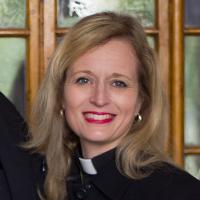Same-Sex Marriage
Gun Control
Fracking
End-of-Life Rights
A Woman’s Right to Choose
The Death Penalty
Universal Healthcare
Immigration
Capitalism
Did I miss any?
Oh, yes: Climate Change. If this list makes you cringe, my colleague, you are not alone. I agree: it reads like the Top-Ten list of “Topics Preachers Should Avoid (Unless Seeking a Different Call).”
What preacher of sound mind would dive into any one of these topics, let alone all of them? What good could possibly ever come of such a foolhardy foray?
With significant fear and trembling, in 2012 I accepted the invitation to teach a course titled “Preaching on Controversial Issues” for the Lutheran Theological Seminary at Gettysburg.
It made good sense (albeit a terrifying prospect) that before I taught such a course, perhaps I should endeavor to actually preach on a controversial issue (or two). Theorizing about the preaching of difficult issues is not difficult: standing in the pulpit of the congregation I served – looking out at the faces of Ila and Ruth and Ervin and Sam and talking about same-sex marriage- was a different reality altogether.
Yet, if I couldn’t make this work in the tiny, rural, mostly conservative farming congregation I had served part-time in Southeast Michigan since 2004, what was the point? And so, in the fall of 2011, the congregation, the Holy Spirit, and I (not necessarily in that order) embarked upon the humbling reality of encountering the gospel of Jesus Christ in the midst of an array of divisive present-day issues.
With trepidation, I introduced the idea to the church council, explaining that I had an ulterior motive: I was teaching this stuff, and I wanted to actually see how, or even if, it would work.
Together, we devised a simple plan — in fact, it is almost embarrassingly simple. But it worked.
First, the congregation would help to choose the issues. We placed a box in the back of the church, and people dropped in slips of paper with issues of interest to them. We selected the most common themes. Then, I would preach: five times on five different controversial issues. We would announce the schedule so folks could plan accordingly. Finally, they would offer feedback each week (same box, different slips of paper with opinions and questions; this was rural Michigan. We weren’t high-tech.)
We followed the plan. And we didn’t explode, or implode. They didn’t leave, and neither did I. We continued to have potlucks in the basement, and we learned that, not surprisingly, attendance goes up when the tough topics are tackled (and of course, coupling controversy with good Lutheran cooking doesn’t hurt).
All humor aside, though, we discovered more than a little good can come from engaging such issues directly, and with humility and compassion. We learned that at the very heart of our faith is a controversial issue upon which we all agree — the life, death, and resurrection of Jesus Christ.
The second greatest good was this: the realization that, indeed, what binds us together is stronger than what could tear us apart, and we need fear no controversies. Neither same-sex marriage, nor euthanasia, nor abortion, nor climate change could separate us from the love of Christ Jesus our Lord. If we could make it through this, we could trust that God would see us through all of it, whatever “it” might be.
So off I went that snowy January, (somewhat) prepared to teach the class in Gettysburg, which was full to bursting (not surprisingly, aspiring preachers want to hear about the controversial topics, too — and they have as wide a range of opinions as God’s children in the pews!).
As is almost always the case, the teacher learned at least as much as the students did.
We learned that respectfully acknowledging and confronting controversial issues need not tear us apart, but rather can serve as a passport into discovering what binds us together. We learned that under no circumstances, ever, should a preacher enter into such an undertaking lightly, or with a point to prove, or even with a desire to change a listener’s mind or heart; the Holy Spirit makes the changes, not us. And, maybe the preacher is the one whose mind or heart will be changed.
We learned that to love each other as God loves means to accept one another where we are, with the beliefs we have and the history that has formed us.
As the Apostle Paul writes in his letter to the Ephesians: “[I] beg you to lead a life worthy of the calling to which you have been called,with all humility and gentleness, with patience, bearing with one another in love,making every effort to maintain the unity of the Spirit in the bond of peace.There is one body and one Spirit, just as you were called to the one hope of your calling,one Lord, one faith, one baptism,one God and Father of all, who is above all and through all and in all.”
I heartily encourage you, working preachers, to prayerfully and humbly enter into the fray; do not shy away from the difficult topics, for it is in facing these potentially divisive issues that we learn the deepest truth — we are eternally united one with another through the timeless love of God. Preach on.

